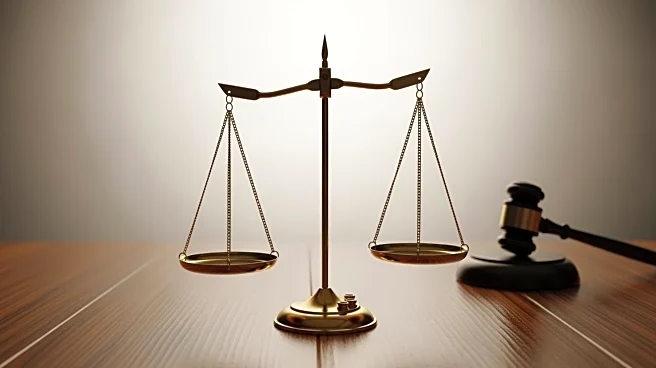What's Happening?
The Supreme Court is assessing the legality of tariffs imposed by President Trump, which have increased costs on imports such as clothing, toys, and vehicles. The tariffs are being challenged by small
businesses, including a wine importer and a bicycle firm, who argue that Trump bypassed Congress using emergency powers. The court's decision could affect trade policy and economic conditions, as tariffs have been linked to higher costs and uncertainty in business investment. Analysts suggest that removing tariffs could lead to increased trade policy uncertainty, impacting hiring and investment.
Why It's Important?
The tariffs have significant implications for the U.S. economy, affecting consumer prices and business costs. Small businesses, in particular, face financial burdens due to increased import costs, which could lead to defaults and bankruptcies. The decision could also influence inflation, as refunding tariffs might boost economic activity but with potential inflationary pressures. The case underscores the balance between executive power and congressional authority in trade policy, with potential long-term effects on U.S. economic strategy.
What's Next?
If the Supreme Court rules against the tariffs, the Trump administration may attempt to reimpose duties using other legal statutes. The logistical challenge of refunding collected tariffs could arise, affecting economic conditions. Businesses and consumers may face continued uncertainty in trade policy, influencing investment and hiring decisions. The court's decision will be pivotal in shaping future trade policy and executive authority.
Beyond the Headlines
The case raises broader questions about the limits of presidential power in economic policy, particularly in using emergency powers to bypass Congress. The decision could set a precedent for future administrations, influencing how trade and economic emergencies are addressed. The legal debate highlights the importance of checks and balances in government, with implications for U.S. trade policy and international relations.








